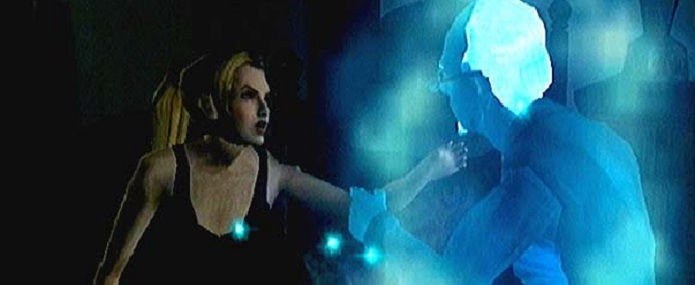Nostalgic Illuminations: Remembering Eternal Darkness

Eternal Darkness: Sanity’s Requiem is one of the few games I still find enjoyable today, and one of the few games that surpassed my expectations when I started playing it. Even now, I have yet to come across a game possessing such a tight narration.
The game starts off with Alex Roivas, a mathematics student exploring the ancestral mansion looking for clues as to how her grandfather (and the primary narrator of Eternal Darkness), was murdered. Through reading a book in her grandfather’s possession—the Tome of Eternal Darkness—Alex discovers how her grandfather is connected to a much more sinister, grandiose plan that involves the resurrection of a being (called an Ancient) into the galaxy to feast on humanity.
It’s possible to choose which Ancient will be the predominant adversary early on, and each have their own unique powers and specialties; Chattur’gha is an Ancient of brute strength; Xel’lotath’s domain is of the mind and insanity, while Ulyaoth’s powers are concerned with magic (or ‘magick’ as the game calls it). While the choice does not alter the makeup of a whole playthrough, the chosen Ancient will influence certain enemies, bosses, cinematics, and dialogue in some way or another.
The script is top notch, and almost ten years after release is still some of the best I have come across in any game. Item descriptions are flourished, almost poetic, without being ostentatious. This is the only game with voice acting that doesn’t ever make me cringe at some point. Even now I get shivers when I hear the narrator declare, “I am Doctor Edward Roivas. I am a clinical psychologist; I am also dead.” Though most of the playable characters admittedly lack in dialogue, the secondary characters more than make up for it. Most enjoyable were the voices of the Ancients: Ulyaoth’s voice drips with pretentiousness and loathing for humanity; Chattur’gha burns with rage; Xel’lotath’s monologues allude to paranoia and perhaps dissociative identity disorder.
Another aspect I appreciated was the mention of famous figures such as Lovecraft and Jung, or works of literature, mostly through Edward’s narratives. Shakespeare and Edgar Allan Poe are also quoted, and these are quiet declarations that Eternal Darkness is a game with culture. I would in fact go so far to say that this game influenced my interest in looking up ideas and prose from those intellectuals.
The historic time frame, geography, and character occupations affect abilities, stats, weapons, and agility. There are five main locations in the game, which are revisited over several centuries; however, while the essence of these locations remains the same, the area itself is influenced by the time period. For example, Peter, a British journalist exploring the cathedral in 1916 AD, is somebody you play later on in the game; you explore the church basement with him, he possesses a very high magick metre, but low health and only slightly higher sanity. Peter’s high mortality can therefore be counteracted with magick spells, which he can use to regenerate his health or create barriers. His weapons consist mostly of guns. In comparison, Anthony, a peasant in the time of Charlemagne, has only swords available to fight with, and is only able to enchant weapons; you play him so early on in the game that the spells or runes required for protective barriers aren’t available, although he does have a healing potion with a limited amount of use. You only explore the top levels of the church with Anthony because most of the area that Peter can explore hadn’t been built in 814 AD. These variations between characters and revisited locations is a brilliant way to keep gameplay fresh.
Though combat and acquiring spells and runes play an important part in Eternal Darkness, one of the most unique aspects of the game (and an important marketing feature) is the sanity metre. It was apparently so prized in its novelty that Nintendo put a patent on it. Every time you encounter an enemy—which is often—sanity decreases; if it gets too low, effects start to occur, some amusing, some annoying, some just damn freaky. These include having your limbs hacked off one by one, or having the game declare that your controller is not plugged in when it obviously is. And if there is absolutely no sanity left in the metre, you hear perpetual, melancholy laughter, and your health takes a beating whenever you look at enemies.
Of course, as with any game, there are some flaws. Combat and evading enemies can be a bit awkward and frustrating, as can controlling some very portly characters. Certain areas are confusing as hell to navigate, and I found the lost city a rather tedious, frustrating place to explore (which is unfortunate because you end up spending a lot of time in it). Game soundtracks are very important to me; while the music is certainly atmospheric and suitable for the game, there are no epic, multifaceted songs that I can recall. But these few hiccups barely make a dent in my opinion of Eternal Darkness.
It has a wonderful story, a great mixture of puzzles, and combat, awesome voice acting, and atmospheric music. Eternal Darkness is the main reason I still plug in my GameCube from time to time.



